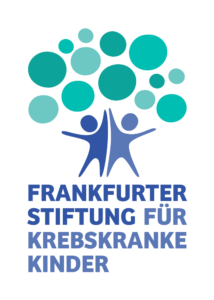Research
In Germany, approximately 2,200 children and adolescents up to 18 years newly develop cancer every year. This makes cancer the most common life-threatening disease in this age group. The primary goal of the Frankfurt Foundation for Children with Cancer is to promote research specifically in the field of childhood and adolescent cancer so that all young patients can be cured in the future and have a chance of a life without long-term consequences. *
Overcoming resistance and developing new therapeutic concepts
Childhood cancers differ fundamentally from adult cancers in causes, frequency, and course. Some forms of cancer occur exclusively in childhood.
Although many childhood cancers are well treatable by now, there are still no effective therapies for some other cancers. Moreover, many of the currently available therapies have far-reaching long-term side effects that young patients must live with until the end of their life.
It is a sad reality that the pharmaceutical industry shows little interest in paediatric cancer research because of poor economic profitability due to the low number of patients.
In order to reach the ultimate goal of one day curing childhood cancer without impairment of the quality of life for those affected, our research house is investigating the following questions:
- How does childhood cancer develop?
- How can the chances of cure be improved and late effects be avoided?
- Why does resistance to treatment occur and how can it be overcome
In order to find answers to these questions, the Frankfurt Foundation for Children with Cancer provides the Interdisciplinary Laboratory for Pediatric Tumor and Virus Research (IDL), headed by Prof. Dr. Jindrich Cinatl, and the Institute for Experimental Pediatric Hematology and Oncology, affiliated with the Goethe University Frankfurt and headed by Prof. Dr. Dirk Heckl, with state-of-the-art laboratories equipped with the latest technical equipment.
The Interdisciplinary Laboratory investigates, for example, why cancer cells in some types of paediatric cancer become resistant to the drugs used and with this information develop new strategies for overcoming this resistance. This research is carried out by means of a worldwide unique cell bank established by this laboratory.

Among other issues, the Institute for Experimental Pediatric Hematology and Oncology is investigating the question of why the naturally intended “suicide programme” for cancer cells does not work in children and adolescents.
This particular research in the Foundation’s research house is carried out in close connection and intensive exchange with doctors and scientists at the University Hospital Frankfurt am Main.
Another important concern of the Frankfurt Foundation for Children with Cancer is the promotion of young scientists. In this context the foundation has awarded the Dr. Maresch Klingelhöffer Prize to young scientists for the best scientific work in paediatric cancer research or related fields since 2008.
Dr. Maresch-Klingelhöffer Prize
The Dr. Maresch-Klingelhöffer Prize has been awarded by the Frankfurt Foundation for Children with Cancer since 2008. It leads back to an endowment by the couple Dr. Otto Maresch and Doris Maresch-Klingehöffer. The prize, endowed with 10,000 euros, honours the best scientific work of young scientists in paediatric cancer research and related fields.
In 2019, Dr. Constanze Schneider received the prize for her scientific work on the identification of a biomarker. With the help of this biomarker, the effectiveness of the standard chemotherapeutic agent Cytarabine in patients with acute myeloid leukaemia (AML) can be predicted.

(In picture from left: Prof. Dr. Jindrich Cinatl, Dr. Constanze Schneider, Dr. med. Jürgen Vogt)


